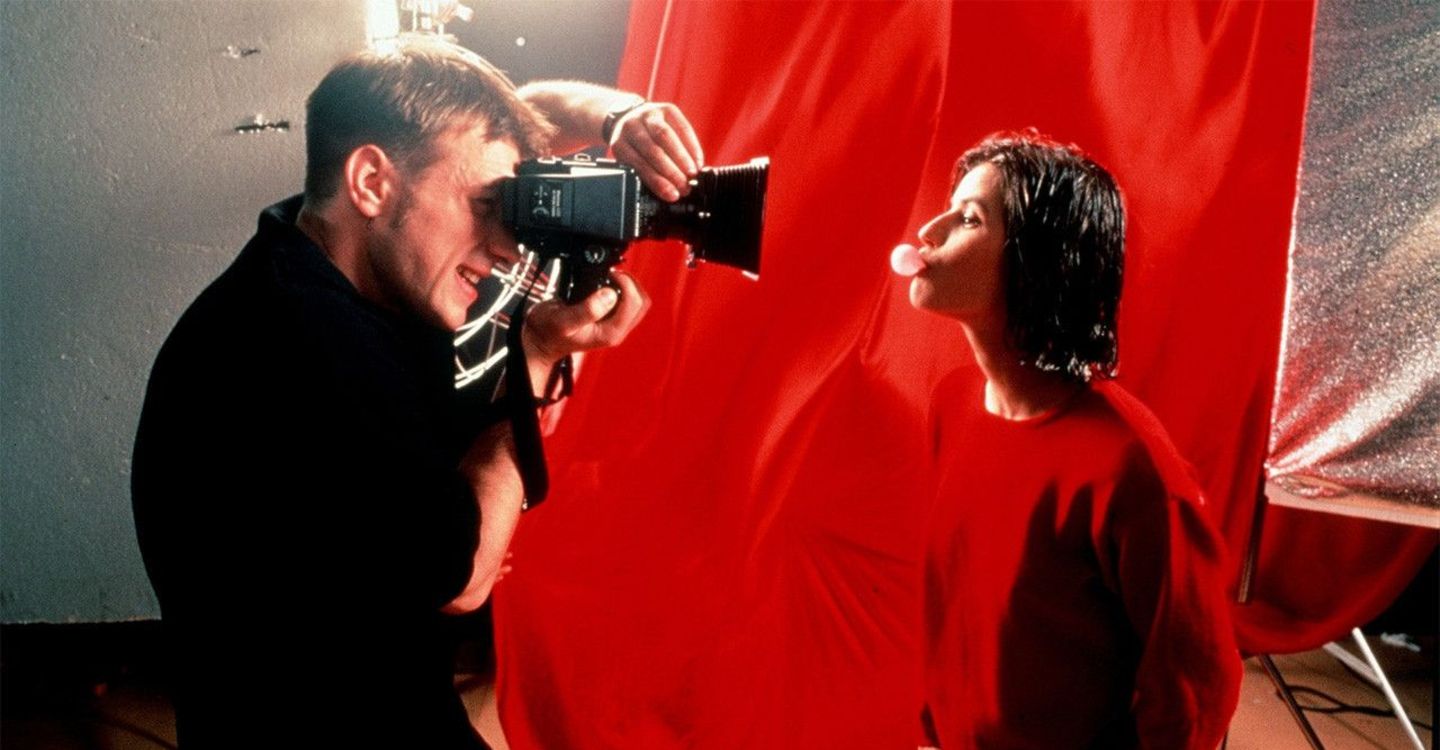
If one were to compare all the greatest European directors, Krzysztof Kieslowski would clearly stand out as being the only true legatee, capable of bringing the same amount of rigorous philosophical discussion to European cinema, as Andrei Tarkovsky, Robert Bresson, and Ingmar Bergman brought to European cinema in their respective eras.
Kieslowski began his career making low budget documentaries and short films, shown on Polish television in the early seventies and ended up making grand international co-productions 20 years and more than 30 films later. He always remained true to his visions no matter the circumstances, not even under the constraints of the communist censorship.
Today, Kieslowski has come, not only to define Polish or even European cinema in the late 20th century, but his work still stands at the aesthetic pinnacles of cinematic achievements, widely praised by audiences and critics alike.
Perhaps his broad appeal is due to the fact that his films deal with so many universal themes that are as relevant in America today as they were in Poland 30 years ago. Themes such as the ambivalence of love, existentialism, moral constraints of religion are all to be found amongst his repertoire.
Within these themes, Kieslowski seemed able to transcend the limitations of cinema by allowing his audience to leave their seats and enter the mesmerizing world of his films, and in doing so, his films, much like the story of Plato’s Cave, provides its audience with a new outlook on the world they live in.
One final notice before getting to the ranking of Kieslowski’s filmography is that this list only concerns Kieslowski’s feature films and TV dramas, this means that all his documentaries and shorts have been omitted from this list, and of course it goes without saying that ranking a director like Kieslowski’s work is incredibly burdensome and one single definitive list can simply never be made.
14. Short Working Day (1981, TV Film)
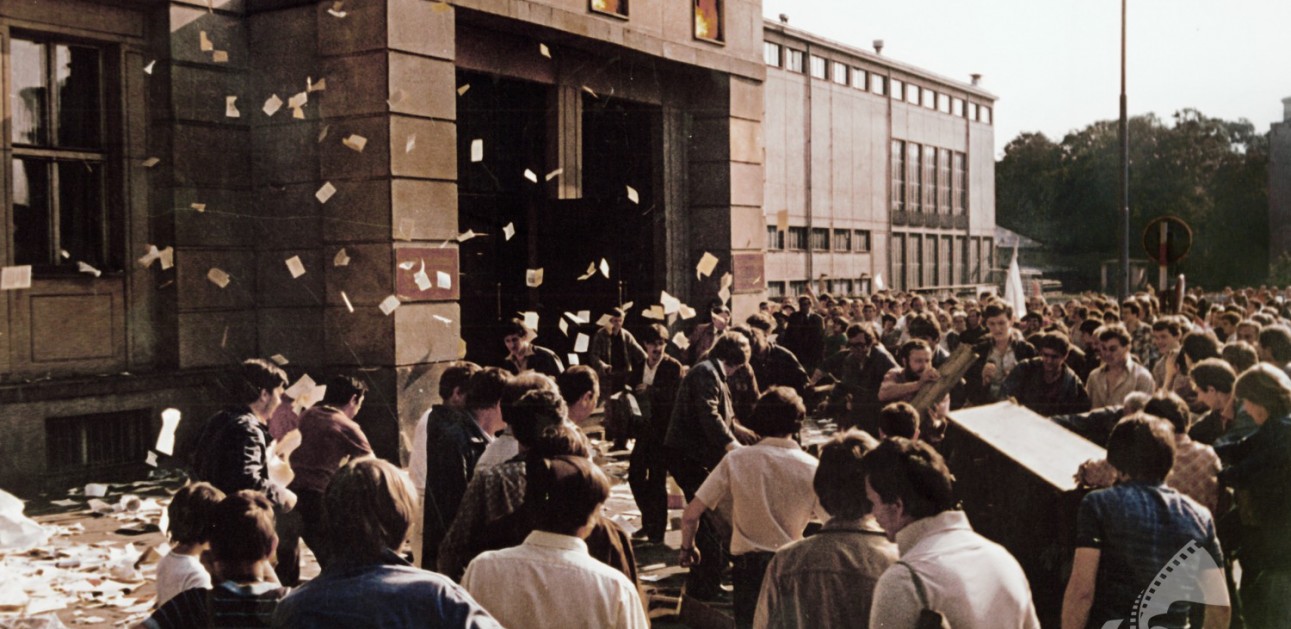
After the film had been banned under martial law for nearly two decades due to its political controversy, Kieslowski’s Short Working Day seems today, more like a historical documentation of the June 1976 protests in Poland than a political thriller, which it obviously tries to be.
The film depicts the June 1976 protests as it centers on Waclaw Ulewicz, a local First Secretary of the Communist Party, as he faces a mob of strikers protesting a sudden increase of 69 percent in the price of many basic commodities, especially food.
As he tries to do the right thing and negotiate with the mob, instead of fleeing as many of his colleagues did, he slowly becomes aware of the life-threatening danger of the mob. Kieslowski’s Short Working Day remains an interesting look into the political rebellion against the Communist Regime but refuses to be any more than that.
One of the film’s major troubles is the lack of an engaging protagonist, the audience doesn’t gain enough insight into his life to really care for him. Another concern is the story, perhaps it would have seemed more appropriate as a TV Short instead of a full-length feature, since the basic core of the story doesn’t hold enough action, to keep the audience’s attention for 73 minutes.
Compared with Kieslowski’s other work, A Short Working Day should mainly be seen because of its value as a historical document in Polish history and as a fascinating insight into the progression of one of Europe’s greatest directors.
13. Personel (1975, TV Film)
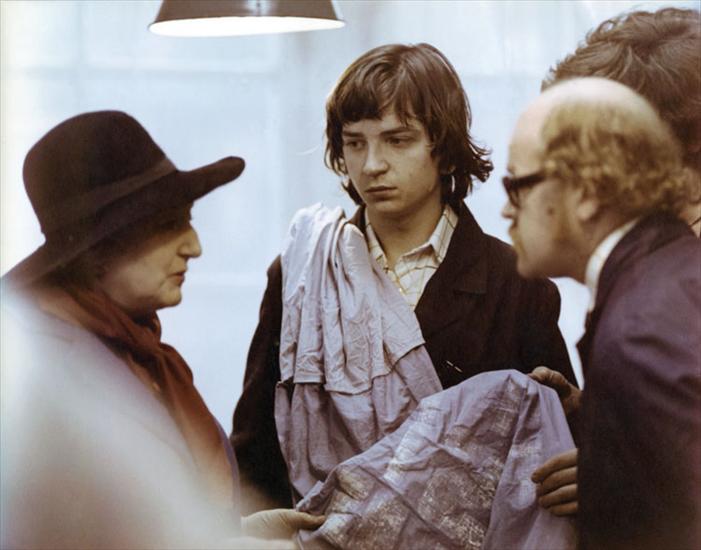
Personel was Kieslowski’s debut feature film after having spent nearly a decade making documentary shorts. It’s in many regards his most autobiographical film, not to be mistaken with his most personal film.
The main character Romek Januchta (Juliusz Machulski), an optimistic, sensitive and honest young man – not unlike Kieslowski at the time – is fascinated by art. He satisfies his fascination when he gets hired as a tailor at the local opera, but the corrupt nature of the theatre world in Poland slowly consumes Romek’s romantic notion of art.
Kieslowski neatly utilizes his documentary skills by shooting the film – much like his documentaries – as a fly-on-the-wall which heightens the feeling of realism. It’s through his use of realism, that Kieslowski seems to want to examine the hierarchical aspect of the theatre world. The world of the theatre seems almost to become a parable of the communist Polish society Kieslowski worked for. It’s a good, well-made film but not on par with any of the films he would later go on to make.
12. The Calm (1980, TV Film)
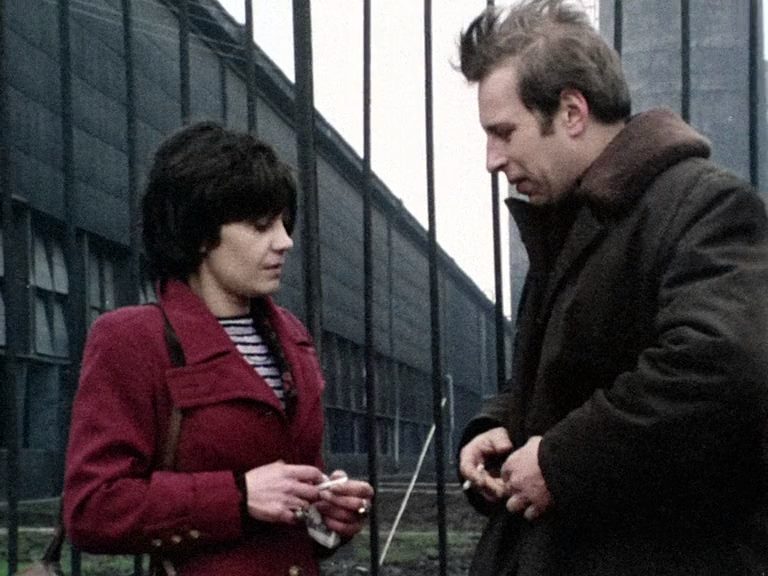
The Calm is perhaps Kieslowski’s most archetypical early film, dealing with many of themes that he would continue to write about well into the mid-80’s. The fact that The Calm takes place during the communist period of Polish history would mean, that by now, the film would most likely have been outdated, but because of Kieslowski’s use of recognizable themes, he manages to make the film still seem poignant today.
After having spent three years in prison, Antek Gralak (Jerzy Stuhr), a young Polish everyman, decided to move away from his hometown to make a fresh start some place where no one knows about his past. He wants to start a family but first, he must find a wife. We learn, through flashbacks, of a farmer’s daughter whom he became acquainted with while doing some labor work during his prison sentence.
They marry, she becomes pregnant, Antek gets a respectable job – or so he thought. Antek quickly learns that corruption apparently is evident everywhere in the Polish society, and now he must choose if he wants to be a part of the corrupt society, or follow his ideals and strike together with the other workers.
Almost no matter what he does, Kieslowski seems unable to restrain himself from commenting on the political status quo. The Calm is perhaps one of his most overt critiques of Polish society, perhaps this is the reason why the film was shelved for five years before finally being released in 1980.
11. The Scar (1976)
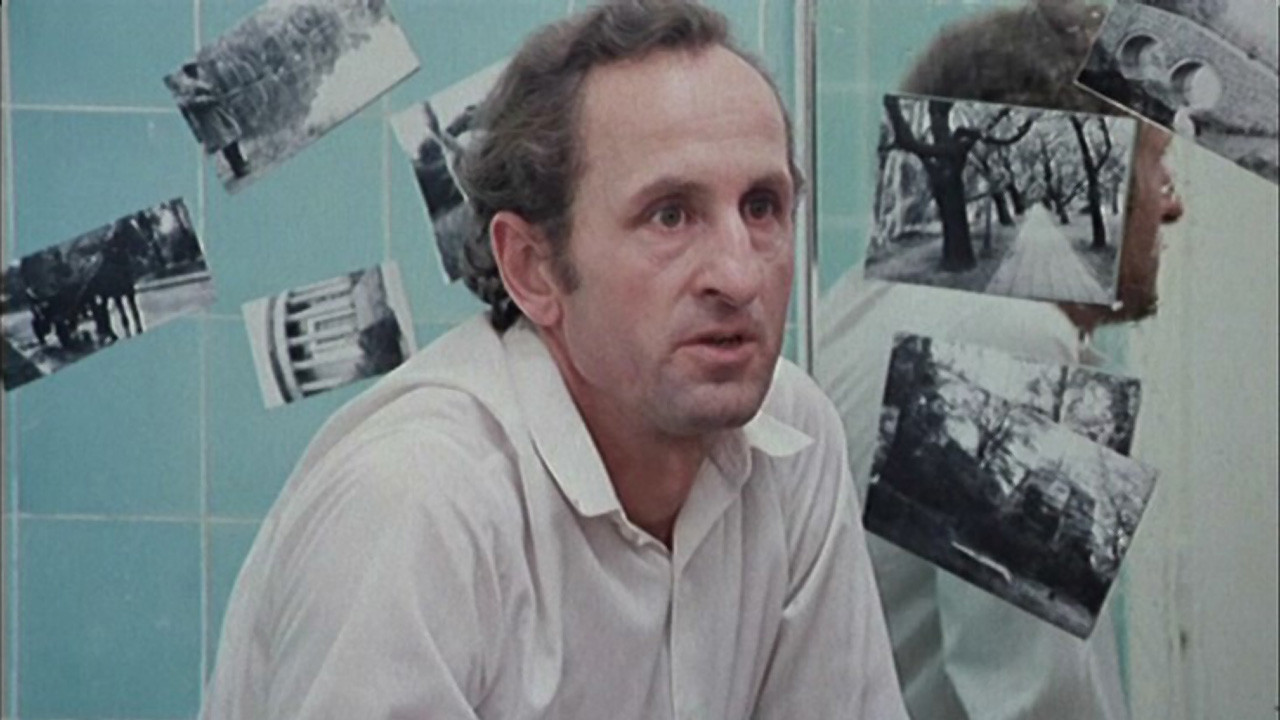
The Scar was Kieslowski’s first feature to be shown on the big screen. Unlike Personel, The Scar has a similar look as the films Kieslowski went on to direct in the late 80’s. However, like Personel, Kieslowski wanted to emphasize the realism of the story as it takes up several relevant political issues present in the 70’s Poland.
Like many of Kieslowski early films, its protagonist is an honest man trying to do good. The honest man in The Scar is Stefan Bednarz (Franciszek Pieczka), a successful manager who is put in charge of the preparation, design, and construction of a large chemical factory including building a small housing complex supposed to house the future factory workers. The dilemma arises as we learn that Stefan and his wife, a former Party activist, used to live in the town where the factory is now supposed to be built.
The Scar is Kieslowski’s first extraordinary feature film in what will prove to be a long row of extraordinary films. In it, he displays several of the trademarks he would later be known for. It received vast acclaim from the Polish film society which resulted in his winning the Polish Film Festival Special Jury Prize, thus providing him with the opportunity to continue making feature films. Who knows what would have happened if the film had flopped, at one point Kieslowski considered working as a cab driver – fortunately for the history of cinema, he got rejected.
10. Camera Buff (1979)
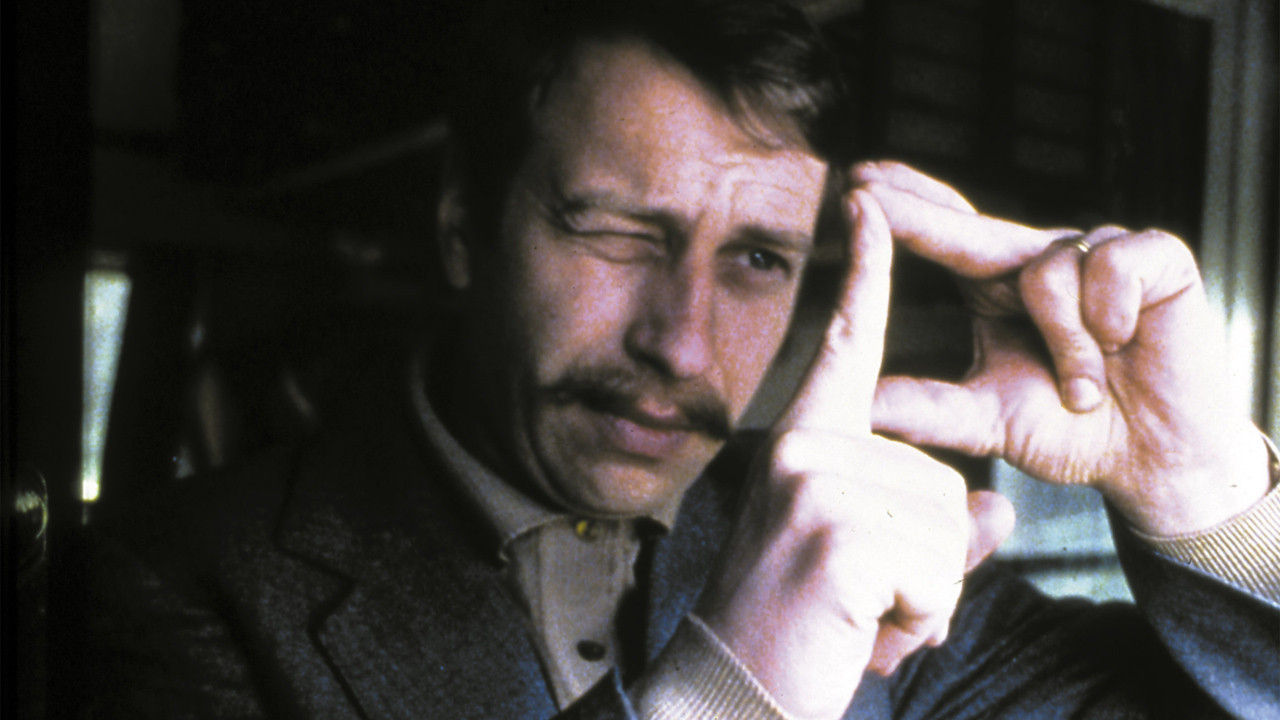
There isn’t much to criticize from this point on in the ranking of Kieslowski’s oeuvre. All these films are great, perhaps some have minor flaws but that doesn’t subtract from their greatness. In many ways, Camera Buff can be seen as the first true Kieslowski film in the late period of his work, as he, instead of focusing on political issues, focuses on the stories and the characters while the politics of the story becomes an undercurrent motif. In Camera Buff, Kieslowski also avoids his documentary-style realism and instead focuses on the self-reflexive nature of cinema itself, through a case study of one man.
This man, Filip Mosz (Jerzy Stuhr), a local factory worker, purchases an expensive 8 mm camera for the cost of two months’ salary, without the approval of his wife, in order to film the birth and development of his firstborn child. He tells his wife, that now he has everything he ever wanted. He quickly becomes quite popular, being the only person in town with his own camera.
Soon the local Communist Party boss wants him to film a celebratory event at the factory. He quickly develops a passion for filming and is struck by the beauty of viewing life through the lens of a camera. The success of his work along with his passion begins to transform his life as he becomes obsessed with filming, which ultimately results in his family leaving him.
Camera Buff was, at the time, Kieslowski’s most ambitious work, and its greatness still hasn’t worn off. When Filip, at the end of the film, turns his camera toward himself for the first time, the allegorical aspect of the film becomes evident. Kieslowski shows us a story of, how one can get caught up in the world of cinema and lose the track of one’s life. A story that has become more relevant for each passing year.
9. Three Colors: White (1994)
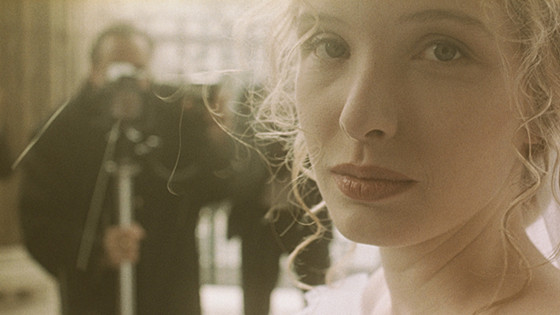
The second entry of Kieslowski’s Three Colors Trilogy is by all standards an excellent film, yet, curiously, it’s the most neglected film of the trilogy. Perhaps that says more about the excellence of the trilogy than the quality of the film.
After having lost his job as the owner of a Parisian beauty salon because, the wife of his dreams, the always beautiful Julie Delpy, having just divorced him, Karol Karol (Zbigniew Zamachowski) decides to move back to his family in his Polish hometown. However, he is unable to move back home since his wife left him no money nor any source of income. As Karol Karol seems to have hit rock bottom, he realizes that to attain equality, he must take revenge on his wife for abandoning him.
In Kieslowski’s White, he explores the various aspects of equality, white being the second color in the French flag, symbolizing equality. In it, he also manages to comment on current political issues, though not as overtly as in his earlier films. White was also Kieslowski only attempt at making a comedy, however, while the film mostly is a comedy, it’s never far from being a tragedy, perhaps that is why it’s so funny.
Like the rest of the trilogy, the cinematography is outstanding and Kieslowski’s use of white as a running visual motif throughout the film is simply superbly executed.
8. Blind Chance (1987)
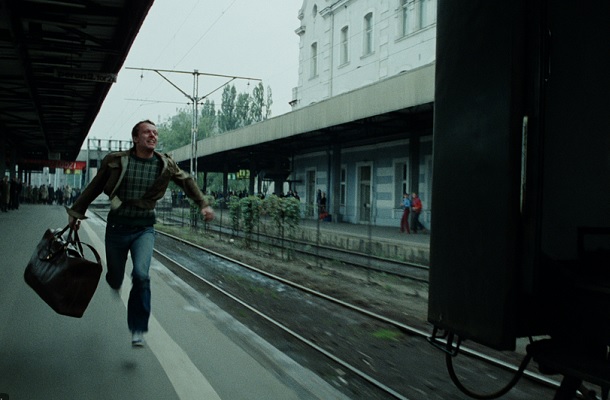
In Blind Chance, Kieslowski challenges the conventions of Polish cinema as he abandons the traditional film structure. At this point in Kieslowski’s career, Blind Chance was his most ambitious work, and after finishing it, he never refrained from being ambitious again. In the film, he succeeds in reflecting his thoughts through the film which, in turn, translates into feelings and ideas in the heads of his audience, something that he would continue to rely on.
The film begins in medias res on an airplane as we hear the protagonist, Witek (Bogusław Linda), a medical student, screaming “No!”. The film then tracks back in time to his childhood, briefly exploring his life up to the moment at the beginning of the film. We learn that he has recently lost faith in his future career after the death of his father, and has spontaneously decided to travel to Warsaw as he buys a last-minute train ticket.
At this point, the film offers Witek three chances to do the right thing, as the rest of the film is divided into three sections. In each of the sections, Witek acts slightly different, however even minor differences in Witek’s behavior, proves to result in vastly different outcomes for his life, and for each “chance” he learns a valuable lesson.
As most of Kieslowski’s work in the eighties, Witek’s story is mostly a political statement. Nevertheless, Blind Chance still, in many ways, serves as one of Kieslowski’s most overtly philosophical films, as he asks his audience to what extent such a seemingly trivial act as crashing into a man drinking beer or not catching a train can have on one’s future, his answer: apparently everything.